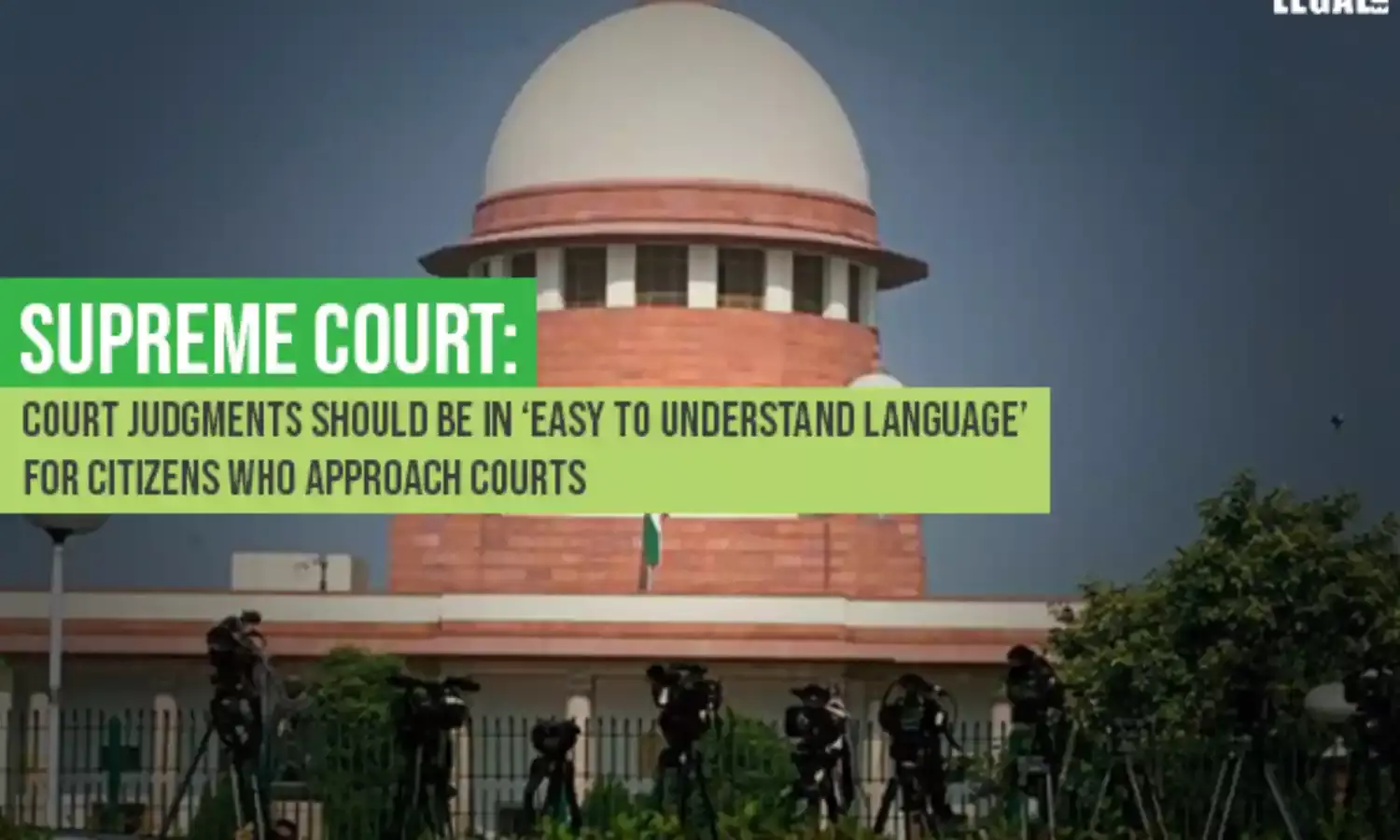Supreme Court: Court Judgments should be in 'Easy to Understand Language' for Citizens who approach Courts
The Supreme Court (SC) on 12 March 2021, in the case titled State Bank of India & Anr. (Petitioners) v. Ajay Kumar Sood;

Supreme Court: Court Judgments should be in 'Easy to Understand Language' for Citizens who approach Courts The Supreme Court (SC) on 12 March 2021, in the case titled State Bank of India & Anr. (Petitioners) v. Ajay Kumar Sood (Respondent) commented on an incomprehensible judgment passed by the Himachal Pradesh High Court (HC). The SC bench comprising of Justices DY Chandrachud and...
Supreme Court: Court Judgments should be in 'Easy to Understand Language' for Citizens who approach Courts
The Supreme Court (SC) on 12 March 2021, in the case titled State Bank of India & Anr. (Petitioners) v. Ajay Kumar Sood (Respondent) commented on an incomprehensible judgment passed by the Himachal Pradesh High Court (HC).
The SC bench comprising of Justices DY Chandrachud and MR Shah stated that judgments of the Courts written in incomprehensible language do hamper the cause of ensuring accessible and understandable justice to citizens.
The Top Court added that "The purpose of judgments is to convey the basis and reasons for its decision not only to lawyers but also to citizens who approach Courts for remedy."
The Apex Court made the aforesaid observation after seeing the HC's judgment copy wherein it had affirmed the order of the Central Government Industrial Tribunal (CGIT). The CGIT in its order concluded that the first charge of misconduct against the respondent was proved, interfered with the penalty of dismissal only on the ground that it was harsh and disproportionate to the misconduct. Hence, the penalty of dismissal was modified to that of compulsory retirement.
An appeal was filed before the SC against the order of the HC wherein the SC observed that the HC had written a judgment of 18 pages however the same was "incomprehensible".
The Apex Court further noted in its judgment that "The reasons set out in the judgment of the Division Bench of the High Court dated 27 November 2020 dismissing the petition filed by the petitioners under Article 226 of the Constitution, span over eighteen pages but are incomprehensible."
The Court extracted the relevant portions of the HC's judgment and noted that the language was not easy to decode. The SC further stated that as the HC had affirmed the award of the CGIT, hence the Court could understand the basic facts from the order copy of the CGIT.
The SC bench further stated, "From the record of the Court, more particularly the award of the CGIT, it emerges that though a serious charge of misconduct was held to be established against the respondent, it has been interfered with and the High Court has dismissed the petition under Article 226."
The Top Court further clarified that "The purpose of writing a judgment is to communicate the basis of the decision not only to the members of the Bar, who appear in the case and to others to whom it serves as a precedent but above all, to provide meaning to citizens who approach courts for pursuing their remedies under the law."
It added that "Such orders of the High Court as in the present case do dis-service to the cause of ensuring accessible and understandable justice to citizens." "Brevity being a virtue, it must be observed as far as possible while expressing an opinion," the Supreme Court had noted in its order while hearing the appeal against HC's order.
The Court opined that a serious act of misconduct stands established from the evidentiary findings contained in paragraphs 16 and 17 of the award of the CGIT.
The SC issued notice and also ordered that no coercive steps shall be taken against the petitioners based on the award of the CGIT dated 9 July 2019.





